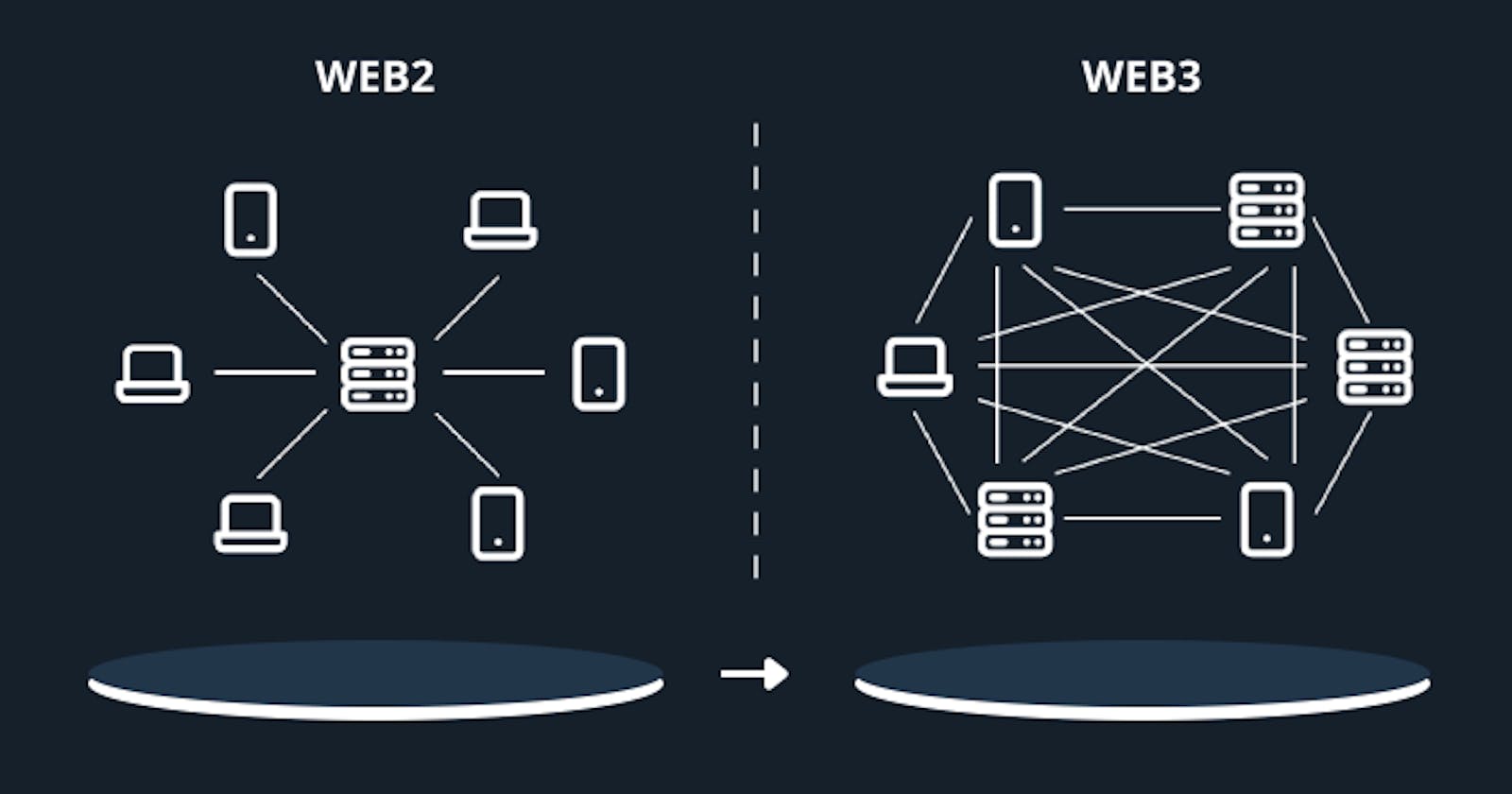Introduction
The evolution of the internet has brought about remarkable advancements in various fields, shaping our lives in unprecedented ways. However, a new paradigm is emerging that promises to revolutionize our digital experiences even further. This article chronicles my personal journey into Web3, highlighting the reasons behind my transition, the importance of Web3, and why you should consider embracing it too
My journey in Web2 and my little accomplishments
In the span of two years, I embarked on an exciting journey into Web2 development. I eagerly delved into various programming languages, but eventually focused on two: Node.js and Python. Through small projects, such as a meeting app that taught me React.js and an event scheduling app that introduced me to backend development, I honed my skills and expanded my knowledge. Along the way, I celebrated milestones like building a social media app, Integrating A.I functions into mobile apps, an app that helps to explain github repos and give ideas for contribution and receiving positive user feedback to so many other amazing projects. This journey has fueled my passion for programming and motivated me to continue exploring and constantly learning.
What is Web3?
Web3 can be simply defined as a decentralized version of the web. It aims to decentralize power and enable peer-to-peer interactions. It leverages blockchain technology and smart contracts to create a more secure, transparent, and user-centric online environment. Web3 envisions a world where individuals have greater control over their data, digital assets, and online identities, fostering trust, privacy, and innovation. Unlike the traditional Web2, which is largely centralized and controlled by a few dominant entities, Web3 aims to empower individuals and foster a more open and democratic online ecosystem. It envisions a future where users have greater control over their data, digital identities, and online interactions.
Why I chose Web3
Several factors played a role in shaping my decision to pursue Web3. Here are a few key considerations:
Saturation in the Web2 realm: As I ventured into the job market, applying for positions and internships, I experienced a mix of responses including acceptances and rejections. However, I noticed that the opportunities I secured often came with lower pay due to my junior developer status. This observation, coupled with the abundance of experienced senior developers in the Web2 domain, influenced my ultimate decision.
Job opportunities: Since it is in its early stages, Web3 provides opportunities for both junior and senior developers enabling the capable ones to get jobs and roles easily(from what I've heard and my research).
Employment prospects: Being in its nascent phase, Web3 presents job opportunities for developers at various levels of experience. This emerging field offers favorable conditions for both junior and senior developers, making it relatively easier for skilled individuals to secure roles and positions (based on anecdotal information and my research).
Supportive and Inclusive Community: The Web3 developer community is vast and inclusive, creating a favorable environment for newcomers. The presence of extensive documentation on various topics and subjects within the Web3 space makes it easier for new developers to learn and enhance their skills.
Empowerment, Ownership, and Decentralization: The three fundamental concepts that deeply resonate with me in Web3 are power, ownership, and decentralization. Web3 offers a system that places the user at the center, granting them exclusive control over their data and identity. This ensures that data and identity cannot be stolen, manipulated, sold, or exploited without the user's consent.
Attractive Compensation: The scarcity of developers in the Web3 space has led to companies offering substantial remuneration to blockchain developers who can provide innovative solutions for their needs.
My learning sources
CryptoZombies.io - CryptoZombies is an interactive coding tutorial that teaches you how to write smart contracts in Solidity through gamified lessons. It's a fun and engaging way to learn the basics of smart contract development.
Dapp University YouTube Channel - Dapp University is a popular YouTube channel dedicated to teaching blockchain development. The channel covers various topics related to Web3, Ethereum, smart contracts, decentralized finance (DeFi), and more, with hands-on tutorials and project walkthroughs
Tech with tim blockchain tutorial powered by Cartesi: This tutorial contains an indepth explanation of blockchain and how it works, building projects and ERC20 tokens.
Other learning sources
Ethereum.org - The official website of the Ethereum blockchain provides comprehensive documentation, tutorials, and resources to learn about Web3 development on Ethereum, including smart contracts, decentralized applications (dApps), and more.
Solidity Documentation - Solidity is the most widely used programming language for developing smart contracts on Ethereum. The Solidity documentation offers detailed explanations, examples, and best practices for writing smart contracts.
Web3.js Documentation - Web3.js is a JavaScript library that allows interaction with the Ethereum blockchain. The Web3.js documentation provides guidance on using the library to build decentralized applications, interact with smart contracts, and handle blockchain transactions.
OpenZeppelin - OpenZeppelin is a widely recognized open-source framework for building secure smart contracts on Ethereum. It offers reusable, audited contracts and libraries, along with guides and tutorials to help developers create robust decentralized applications.
Consensys Academy - Consensys Academy offers in-depth blockchain courses and educational resources. They cover a wide range of topics, including Ethereum development, decentralized application architecture, blockchain security, and token economics. Their courses are highly regarded in the industry.
Summary In conclusion, I aspire to further enhance my expertise in this domain and make meaningful advancements and contributions to the realm of Web3. I invite you to be a part of this transformative journey as well. This doesn't mean I won't continue writing articles on web2 and A.I.
Happy building!!!!
